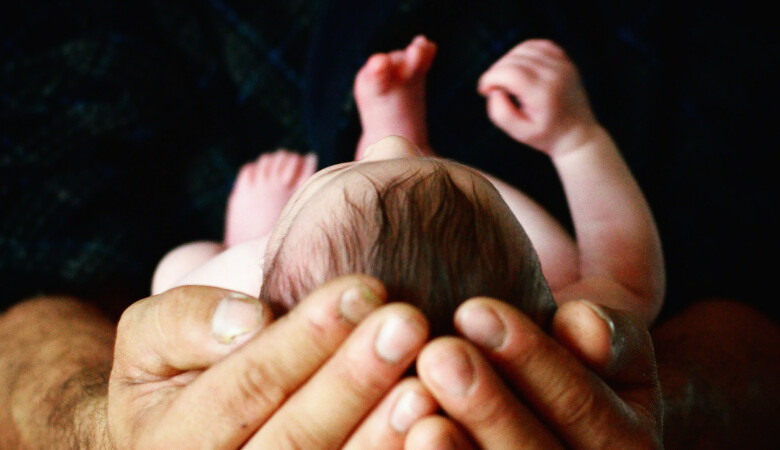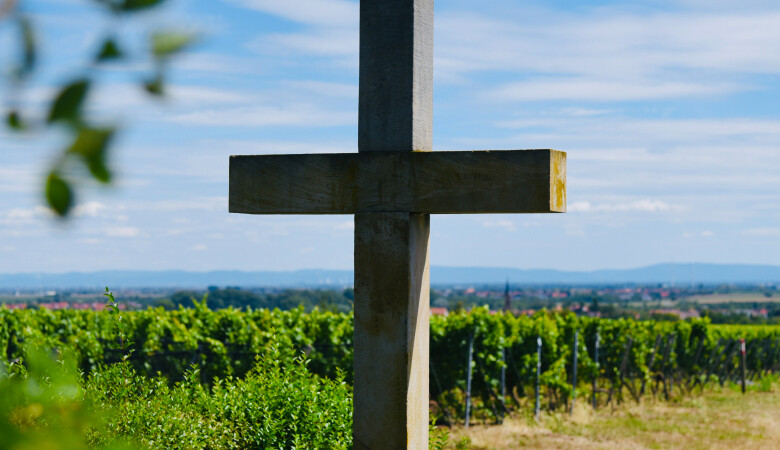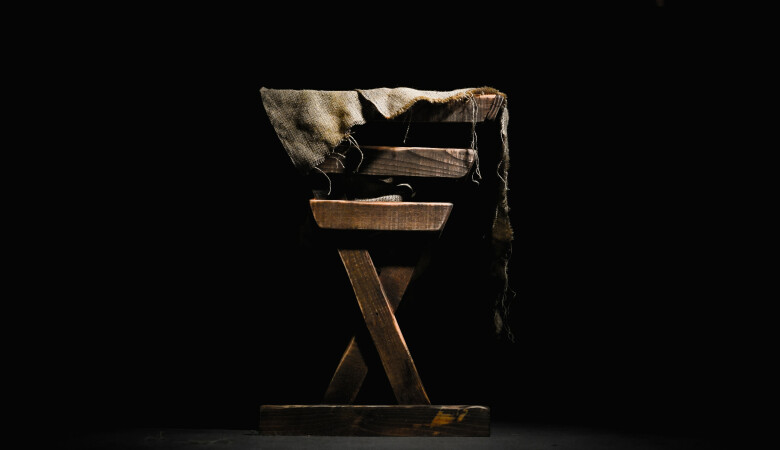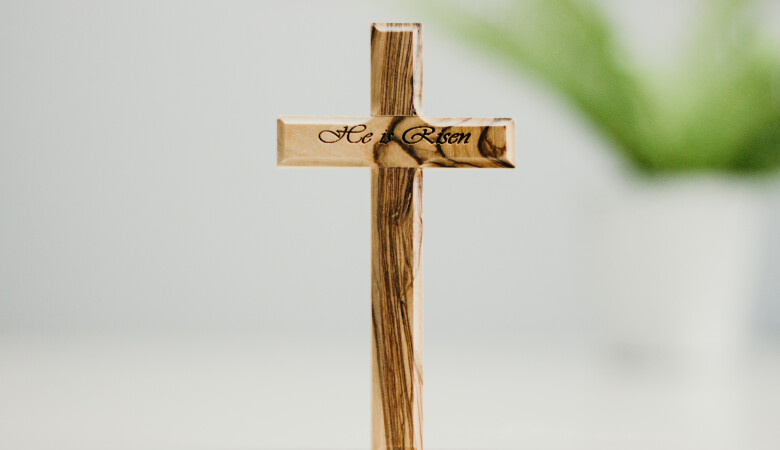Opening Our Christmas Gifts: The Treasure Trove of the Incarnation
December 23, 2012 | Andy Davis
1 John 1:1-5:21
Incarnation
sermon transcript
Introduction
Beyond All Question, The Mystery of Godliness is Great
1 John, we're going to be looking across that epistle this morning, not really just focusing on one part of it in particular and my desire is to draw out some of the treasures of the doctrine of the incarnation, the gifts of Christmas that are ours in Jesus. But I want to begin in a couple of other places, just by way of introduction. In 1 Timothy 3:16, the Apostle Paul writes these words, "Beyond all question, the mystery of godliness is great. He appeared in a body," and then he says a bunch of other things, but the mystery of the incarnation is great, this is a great mystery.
Now, Christmas is many things to many people. It's a rich, frantically busy, lavishly apportioned feast that can be sometimes overwhelming, sometimes a time of incredible blessing, some people just love it, they just enjoy this time of year, they love the traditions, they thank God for them, the tradition is the time with family and friends, they love to eat. Let's just be honest. Let's just say it straight out. They just love the food. I don't know how much our congregation gains in this month, but you know it leads right into the resolutions that come in January, but we'll get to all that in due time. But they just enjoy the celebration, they enjoy the decorations, the putting up of the tree, they enjoy the lights and the memories that come with all that, but others genuinely struggle with Christmas and they struggle with it, the secularization of it, the fact that we have to keep reminding our culture that Christ is the reason for the season. We have to keep Christ in Christmas, because there's just this pressure all the time to secularize everything, to take God out of it. The Santa Claus themes, the seasonal songs that come, like ‘Have a Holly Jolly Christmas.’ What does that mean? I don't know what that means, but some carolers came to our house the other day demanding some figgy pudding and I don't know what that is, I've never had it and they said they wouldn't leave until we gave it to them. We worked that out. My wife had some candy canes and they accepted that instead, so we were able to get through that alright. But just different things, ‘Rudolf the Red-nosed Reindeer’ - what does that have to do with the Incarnation, how far we are? And some openly struggle with the gross materialism of Christmas, the gifts, the fact that we are so well loved, and we know that there are many people in the world that don't have even the basic necessities of life. The struggle with that. I understand that. And perhaps all of this, for me anyway, most clearly symbolized in Dickens' Christmas Carol as he thrashes around trying to figure out the meaning of Christmas. I'm not sure what his spiritual state was. But if we have Ebenezer Scrooge and he's being instructed on what the true meaning of Christmas is by three ghosts, the ghost of Christmas Past, Present and Future - and especially the Present, the Ghost of Christmas Present, who's this huge giant, who according to Dickens is sitting on a monstrous pile of luscious food, of turkeys, geese, game, poultry, brawn, great joints of meat, suckling pigs, long wreaths of sausages, mince-pies, plum-puddings, barrels of oysters, red-hot chestnuts, cherry-cheeked apples, juicy oranges, luscious pears, immense twelfth-cakes and seething bowls of punch and all of it's just steaming according to Dickens, filling the room with aroma and with steam, so that it became kind of misty in the room - and that giant, that Ghost of Christmas Present is there to teach Ebenezer Scrooge what Christmas is all about? To me, he looks a little different than Bacchus, the God of wine, sitting on a pile of food ready to eat gluttonously and become drunk. And if you look at the lessons that he learns in the end, what is Christmas? What's the transformation that happens? It's benevolence to our fellow man. It's generosity, it's giving to the poor and needy, but stripped of Christ, of any mention of Jesus, of any regeneration through the gospel and through the Holy Spirit. So that's the world we live. This is the culture we have.
And for me, I want to just as I begin here, just meditate on the mystery of Christmas, the mystery of godliness, with two words in particular, in particular written by the Apostle John, but not in 1 John. But it's in John chapter 1; you don't have to turn there, but just listen. There are two words in particular that struck me this morning and they are the words flesh and fullness and that really gets to the mystery of Christmas very directly, flesh comes from John 1:14 to the center of the doctrine of the incarnation, which is just the infleshment of the Son of God. John 1:14, Jesus "The Word became flesh and made his dwelling among us." And this gets immediately to the heart of the mystery. Jesus Christ, the eternal Son of God, became flesh, he had muscles and blood vessels and nerves and sinews and ligaments and hair and sweat and all of the physical side of life, and the mystery of that Word is infinite, because we're told in many other places in the New Testament that the flesh is our whole problem. We're battling the flesh all the time, these are the three enemies that we get, the world, the flesh, and the devil. We're told in 1 John Chapter 2, same writer but different passage, "Do not love the world or anything in the world. If anyone loves the world, the love of the Father is not in him. For everything in the world, the lust of the eyes, the lust of the flesh and the boastful pride of life come not from God, but from the world. The world and its pleasures pass away, but the one who does the will of God lives forever." So we're warned against the flesh by John, the same writer. So this is a mystery. How could God become flesh? The flesh of John 1:14 must be sufficiently similar to the flesh of 1 John 2, or else he wouldn't use the exact same word. But clearly the flesh that Jesus took on is different than what we're warned about in terms of the lust of the flesh, in 1 John 2 and so we struggle with that and it goes right to the mystery. And so Jesus came to take on a body and live in it purely as God, holy and pure, God is light and in Him there's no darkness at all. And he's able to live a life in the flesh without sinning at all. That's a mystery to us.
The second word that I wrestle with this morning was the word fullness. Two verses later in John Chapter 1, it says in John 1:16, "From his fullness, we have all received grace upon grace." What an incredible Christmas verse that is. From his fullness, we have all received grace upon grace. Fullness is such an incredible word, meditating on it this morning, Jesus Christ is fullness incarnate. Colossians 2:9, "For in Christ, all the fullness of the deity dwells in bodily form." That's the mystery of Christmas. Earlier in Colossians 1:19, "For God was pleased to have all His fullness dwell in Him." But this is more than just saying that Christ is fully God, it's more than that. It's saying that God is a full being, there is a fullness and a richness to God, God is full of mercy, full of grace, He's lavish in these things, full of wisdom, full of power. He has none of that neediness and deficiency we feel every day, he is a full, rich, complete being, we cannot add anything to his happiness and we can't take anything away from it. And Christ came to display that fullness for us in bodily form and how sweet it is that he also came to give us that fullness as well. As Paul prays in Ephesians 3:19, "That you may be filled to the measure of all the fullness of God."
And from that fullness, that rich fullness that God is, that Jesus is, comes in John 1:16, "Grace upon grace," gift upon gift. Those are your Christmas gifts, John 1:16. Those are your Christmas gifts, grace upon grace is one translation, or grace instead of grace, or grace in the place of grace, it's a Greek word that means "In place of," so as soon as one gift of grace comes to you, the next one is on its way. And we're just living a life of grace, a river of grace, His mercies are new, every morning, his grace flows to us and we need it every day. And from his fullness, we get gift upon gift, grace upon grace and there is your wealth, there are your Christmas gifts, not the boxes wrapped under the tree. It may be included in that, we can see God's love and the relationship and all that that comes to those physical gifts, but it's really ultimately grace upon grace. So that's a mini-sermon, just introducing - I just wanted to do that, is that okay? You say, "What does that have to do with 1 John?" I hope it has something to do with it. But as I was meditating on this flesh and fullness, it just came to me in this way, and I want to turn now to try to understand more fully these mysteries in John's other writing and that's in 1 John.
The Reality of the Incarnation (1:1-3)
What is the Doctrine of the Incarnation?
I want to begin by just the reality of the incarnation, what do we mean by that? What's the doctrine of the incarnation? I've already said it, but let's plumb it a little bit more deeply. It is the truth that God, the Son, the eternal Son of God, who existed from eternity past, he's not a created being, shows in the will of the Father to become human, to take on a human body, to take on flesh. And this is an infinite mystery. In Luke 1:33-35, the Angel Gabriel said to Mary, who would become Jesus' mother, "Do not be afraid, Mary. You have found favor with God. You will be with child and give birth to a son and you are to give him the name Jesus. He will be great and will be called Son of the Most High. The Lord God will give Him the throne of his father, David," so there's the mystery of the incarnation, Son of God, Son of David, Son of Man, all at once. "'And He will reign over the house of Jacob forever. His kingdom will never end.' 'How will this be?' Mary asked the Angel, 'Since I am a virgin.' The Angel answered, 'The Holy Spirit will come upon you and the power of the Most High will overshadow you. And so the Holy One to be born of you will be called the Son of God.'" So there's the mystery. Jesus supernaturally, miraculously conceived in the body of this woman, Mary, conceived by a miracle, but born in the natural way. If you had been in that stable where Jesus was born, you would have observed an unusual set of circumstances, but very much a natural child birth, normal birth, he was born in the ordinary way. After he was born, he was wrapped up in swaddling clothes and cared for in the ordinary way.
1 John Speaks Powerfully to this Doctrine
Now, John, 1 John speaks very powerfully of this doctrine. 1 John 4:2, it says this, "Every spirit that acknowledges that Jesus Christ has come in the flesh is from God." So he teaches this very plainly. Again, 1 John 4:9, "This is how God showed his love among us. He sent His one and only Son into the world, that we might live through Him." So Jesus, the Son of God, sent by the Father in the flesh in the world so that we might live. And then 1 John 5:6, "This is the one who came by water and the blood, Jesus Christ." So the Doctrine of the Incarnation taught plainly in 1 John.
John, as an Apostle, Was Chosen to Be an Eyewitness to the Incarnation
Now, at the beginning of this epistle, we go to 1 John 1:1-3, John, as an apostle chosen by Jesus after a night of prayer up in the mountain. He came down and chose the 12, John was one of them and he was chosen as an apostle to be an eyewitness and to be with Jesus for that period of time in his earthly ministry and then to testify to what he had seen. And he writes about it here in 1 John 1:1-3, he says, "That which was from the beginning, which we have heard, which we have seen with our eyes, which we have looked at and our hands have touched, this we proclaim concerning the word of life. The life appeared, we have seen it and testified to it, and we proclaim to you the eternal life, which was with the Father and has appeared to us. We proclaim to you what we have seen and heard." This is very practical. Do you see that? Very physical. What he's saying here, Jesus the son of God, had a physical body that could be touched, so we're proclaiming to you what we have seen with our eyes, what our hands have touched concerning the Word. And He lived a physical life that could be observed with the eye, John lived with Jesus, he ate with Him, he ate meals with Him. He was an eye witness to the incarnation, "The word became flesh, and we have seen His glory," glory, the only begotten, "full of grace and truth."
The Incarnation Must be Proclaimed
Now, in this introduction here in 1 John, he says, this doctrine of the incarnation must be proclaimed, it must be preached. It is possible to learn much about God, about the existence and nature of God, from creation, from nature. Theologians call it natural theology. And so you can look at nature and learn things about God. In Romans Chapter 1:20, it says, "For since the creation of the world, God's invisible qualities, His eternal power and divine nature have been clearly seen, being understood from what has been made from creation, so that men are without excuse." So we can understand the existence of God, we can see His power, we can see his wisdom, we can see His love and His care and concern, His compassion. You can see attributes of God and creation if you know what to look for, it's there. Psalm 19 says it very beautifully, verse 1 and 2, "The heavens declare the glory of God and the skies proclaim the work of His hands. Day after day, they pour forth speech; night after night, they display knowledge." What is the speech? What is the knowledge? There is a God. He is magnificent, he's powerful. He's worth knowing.
You can learn these things from nature but you can't learn the Doctrine of the Incarnation from nature. That you cannot do. This is a doctrine that must be proclaimed, it must be spoken by the witnesses, by those who saw it and so John says, "What we have experienced as apostles, what we lived through concerning the Word of God, this we proclaim to you, we're preaching it to you." And so, witnesses must go. As it says in Romans, "How beautiful are the feet of those who bring good news." That's what the lotion Christmas offering is all about, so we're near the end of that offering, please, if you haven't given yet, haven't prayed through, be part of sending missionaries to take the message of the incarnation to the ends of the earth. That's why they go, because those people at the ends of the earth, those people have never heard of Jesus, they will not discern him from a sunrise or a sunset or a mountain, must be proclaimed and preached. And so the physicality of this was proclaimed, what we experience, we sat at table with Jesus. And we walked down the road, we heard the gravel crunching under his sandals, we saw his face get wet with rain and his hair get blown with wind. We saw the way he interacted with people. We saw the way he dealt with his mother, the way he dealt with fellow townspeople and neighbors. We saw the way he dealt with people who loved him and the people who hated him, people who were filled with joy at what he had done and may be a healing, a miracle and just falling on the ground, worshipping Him and holding on to him and then those that hated him and wanted to kill him, how he interacted. We watched the look on his face, we heard the tone of his voice, we saw it all. And this is what we are proclaiming to you, this perfect human life, this is what we proclaim to you. And unforgettably, ultimately we saw Him beaten and tortured and bleeding and dying and dead as John witnessed his death on the cross.
Ultimately, Witnesses of His Resurrection
We have seen these things and even better than all that we have seen His resurrection, we are witnesses to the fact that God raised Him from the dead and He is still mysteriously in a human body, He is in a resurrection body, but it is absolutely human. After his resurrection, he appeared to these apostles and to other eye witnesses, many others and he stood among them and he showed himself to them that he was bodily raised from the dead, He said, "Peace be with you." They needed to hear that a lot in those days, he would show up and just have to say, "Peace be with you." And then he would say, "Why are you troubled?" Luke 24, "Why do doubts rise in your minds? Look at my hands and my feet, it is I, myself. Touch me and see." I think this is probably what John was writing about more than anything else. When he said, "What our hands have touched this, we proclaim. Touch me and see. A ghost does not have flesh and blood, as you see, I have." And when He had said this, He showed them His hands and feet. And while they still did not believe it because of joy and amazement, he asked them, "Do you have anything here to eat?" They come up with a physical piece of broiled fish, something you could hold in your hand. Though why you'd want to, I don't know. But at any rate, they were holding in their hands and they handed it to Jesus and he took it and ate it in their presence. Same thing in John Chapter 20, though the doors were locked for fear of the Jews, Jesus came and stood among them and said, "Peace be with you." And then He showed them His hands and His side. A week later to Thomas who doubted whether he actually had risen from the dead, he said, "Put your finger here, see my hands, reach out your hand. Put it into my side, stop doubting and believe." Okay, so they were Apostles; we don't have that privilege. We don't get to do what Thomas did. We have to believe this message that was proclaimed, we get to believe the Word that was proclaimed based on the eyewitness accounts of Jesus' life and His resurrection.
The Ultimate Purpose of the Incarnation (1:3-4)
Eternal Life
Now, what, secondly, is the ultimate purpose of the incarnation? Whenever you talk about ultimate purpose, we must immediately go to the glory of God. Now, it does all things for the praise of His glory. But I'm going to find in John 2 purposes that he writes about of why Jesus became flesh and the first is eternal life, that we might know what eternal life is and that we might partake in it ourselves. He came to give us eternal life. So look at verse 2, "The life appeared, we have seen it and testified to it, and we proclaim to you the eternal life, which was with the Father and has appeared to us." So clearly, first and foremost, he's talking about Jesus as a living God. He lived with the Father and then he brought that evidence, that experience of life to a dead world. He said this is life, this is what it looks like. And I think John's Gospel, there's a beautiful job of explaining not only how we can partake in that life, but what it's like, what is that life, that eternal life like. What is the nature of it? What is the quality of it? What is the aroma and the flavor of eternal life?
And so, chapter after chapter of John's Gospel gives us a sense of that. In John chapter 2, it's like a feast in which there's an abundance of the highest quality wine, not for drunkenness or immorality, but as a gift of God, a picture of the Spirit as he produces joy in the hearts of those that feast, John chapter 2. In John chapter 3, it's a transformation so radical that it's like being born again, a change of life so radical, so different that you recognize, "Before, I was dead and now I'm alive." It's a whole new kind of life. A radical transformation that comes by the power of the Spirit. John chapter 4, it's like having a spring of water inside you, welling up to eternal life and you can drink from it anytime you want. In John chapter 5 and chapter 11 and kind of Lazarus. In chapter 5, the doctrine, it's like being dead in the tomb and hearing the voice of the Son of God coming to life and coming up and living forever. It's really a lot like that, it's actually exactly like that. Because that's what's going to happen to all of us at the end. He's going to raise us up on the last day and he's going to raise us up to live but Lazarus lived it out and to hear the voice. "Lazarus, come forth," and he came forth. And the doctrine, I am the resurrection and the life. I am the resurrected life, John chapter 5. John 6, it's like having heavenly bread that you can eat any time you're hungry, similar to the John 4 teaching of water that you can drink any time you're thirsty and you can feast on this bread from heaven that came down from the world, which is the life that Jesus gave, his body, dead on the cross to give us nourishment spiritually. In John 7, it's like having a stream of living water flowing from within you out to others around you, so you become a blessing instead of a curse, you become a blessing as Jesus by the Spirit flows through you and causes others to be satisfied in God. In John chapters 8 and 9, it's like being blind, even born blind and Jesus comes in John 8 and says, I am the light of the world. Whoever sees me knows what the world is about, you don't walk around in darkness anymore, but you have the light of life, and so I just wonder what it was like for that man born blind to see color for the first time. Reds and blues and greens, and just see the world and how richly beautiful, that's what this life is like, it's like you are blind and now you can see and you see it all so beautifully. It's like having in John 10 a good shepherd who will protect you and care for you and meet all of your needs and feed you and keep all of the wolves away, until at last you come to your Heavenly Father.
Jesus is the way and the truth and the life. Only in him do you come to the Father, because ultimately the life comes from the Father. So if you look at the end of 1 John 5, just as he does at the end of John's Gospel, he says, I'm writing this so you can have life, I want you to have life. And so in 1 John, he says, "This is the testimony, God has given us eternal life, and this life is in his Son. He who has the Son has life. He who does not have the Son of God does not have life. I write these things to you who believe in the name of the Son of God in order that you may know that you have eternal life." Now, you're experiencing it now. Go through those chapters, John 2, 3, 4, 5, all that. It's going on now, but it's going to get even better. Grace upon grace. That's what we're living right now. That's the Christmas gift here.
Joyful Fellowship
So, he came, he was incarnate to give us life, to display the life, what it looks like, and then to give it to us freely as a gift. And secondly, the image of fellowship, of joyful fellowship. We have life, not so that we'll be hermits or in solitary confinement, we have life so that we may have a relationship with God, first and foremost. Fellowship with God and secondly, fellowship with brothers and sisters who have been redeemed just like us from all over the world. We can have fellowship with God and with one another. Look at verses 3 and 4, "We proclaim to you what we have seen and heard so that you also may have fellowship with us, and our fellowship is with the Father and with his Son, Jesus Christ. We write this to make our joy complete." And so this idea of fellowship, of sharing, of intimate relationship, of a sharing of things in common that we have together. The ultimate picture, of course, is the Trinity: Father, Son, Spirit, sharing deity, sharing Godhead together, perfectly one, sharing everything together. And so Jesus says, "All I have is the Father's and all the Father has is mine." We share those things together, and all the words I speak, they're the Father's words. "I and the Father are one." So they completely share everything. And our fellowship is patterned after that. He writes that we might have that kind of fellowship with each other, that we might be one as the Father and the Son are one.
In the Book of Acts, we see this fellowship beautifully depicted, don't we? In the early church, Acts chapter 2, all the believers were together, "they were one in heart and mind." They devoted themselves to the apostles' teaching and to the fellowship, to the breaking of bread and to prayer. They would share things together, they would share teaching times under the apostles' teaching together. They would share food together. They would share possessions as needed together. If there is anybody with a need, somebody would sell a house or a field or something and bring the money and bring it at the apostles' feet, and they would give it to the needy. And so they shared those things together, they shared ministry together, witnessing to Jesus, sharing the gospel, they shared that, and they suffered together, and they died together. They were in incredible fellowship and joy was at the center of it.
We write this, he says, "…to make our joy complete." I'm writing this to you, he's saying, as you read this, I want you to have fellowship with me so that I can be happier. In other words, if you would just believe this message and join with us, we will all be happier as a result. The more I meditate on that, the more unusual that seemed. Generally, if you're having a really great time with a set group of people, you want to shut and lock the door because the odds are, the next person who comes in might in some way diminish your joy. That's the tendency, I'm not saying it's always that way. It's not the Christian way, but it is the natural way to have an exclusive joy club and you don't want anyone else coming in. John is so different from that. It's like anyone God wants to bring by the Spirit, by the gospel, we want them to come and we know that every new person that gets added, our joy will be made more nearly complete and our joy won't actually be complete until all the elect are redeemed and brought into that fellowship with God. He said, "I'm writing this to make our joy complete." Some manuscripts say, "Your," it's all the same thing to me. Your joy, our joy, it's the same joy that we might together have this joy and make it complete. And this is a beautiful thing, isn't it? This is the joy of the advancing gospel of Jesus Christ.
Every sinner that repents, there's joy in heaven. The Father is celebrating and there's a cycle of parables in Luke 15, where there's three lost things: There's a lost sheep, there's a lost coin, there's a lost son. And the same thing happens all three times when the sheep is found, the shepherd rejoices, he puts it on his shoulders, he comes back and he says to his neighbors, Celebrate with me, because my sheep was lost and now it's found. And Jesus said, "..in the same way, there's more joy in heaven over one sinner who repents and comes back to God than over 99 that had no need of repentance." And the woman who's got a set group of coins, beautiful set group of coins and she loses one and she searches diligently until at last she finds it and then she has great joy and she wants to bring in the neighbors and they celebrate, I found my coin. And Jesus says the same lesson, the same way, there is joy in heaven over one sinner that repents. And then, of course, the prodigal son. There's a father waiting for the son to come home, and when the son comes home, he just runs and puts his arms around him, there's tears on his face and he's hugging him and holding, he's welcoming him back in, put a robe on him, put a ring on his finger and shoes in his feet. And let's kill the fattened calf, and let's have a feast because this son of mine was lost and now he is found. He was dead and now he is alive again. So there's joy. We don't want to be the older son that's out there with the arms crossed and saying, You know, I'm toiling and slaving all the time, what do we have in this celebration for over? This son of yours who squandered all your wealth. And the father says we have to celebrate. There is a joy that comes when a sinner is redeemed and comes into this fellowship. So it's all about joy, and that's why John writes it's joyful fellowship together. So he says in verse 4, "We write this to make our joy complete."
The Achievements of the Incarnation (2:1-2, 3:1)
Atonement
Now, what are the achievements of the incarnation? Jesus had intentions. What did he actually achieve? Well, there's so many verses in the New Testament that talk about the achievements based on 1 John, I'm going to zero in quickly on three: Atonement, adoption, transformation. He achieved by taking on a human body our atonement, the atonement of our sins. Look at 1 John 2:1-2, he says, "Dear children, I write these things to you so that you will not sin. But if anyone does sin, we have an advocate with the Father, one who speaks to the Father in our defense, Jesus Christ, the Righteous One and he is our atoning sacrifice or propitiation, and not for our sins and not for our sins only, but for the sins of the whole world." That's atonement. Jesus atoned for our sins by shedding his blood on the cross. The wages of sin is death. Without the shedding of blood, there is no forgiveness so Jesus took on a human body. What we celebrate at Christmas time is that Jesus became flesh so that he might give that blood, that body on the cross as an atoning sacrifice for our sins, and it has been achieved. There is in the body and the blood of Jesus given on the cross, full forgiveness for all of our sins. We have no wrath left, we are reconciled to God through Jesus, and that's an achievement of the incarnation.
Adoption
Secondly, adoption. we the outsiders, we the enemies, hate-filled, rejectors of God, we have been because of the incarnation, because of the work of Christ, adopted as sons and daughters of the living God. Look at chapter 3, verse 1, "How great is the love the Father has given to us that we should be called children of God. And that is what we are. The reason the world does not know us is that it did not know him. And dear children, now we are children of God, and what we will be has not yet been made known, but we know that when he appears, we shall be like him, for we shall see him as he is." So the incarnation effects brings about our adoption as sons and daughters of the living God.
Transformation
And then thirdly, the incarnation gives us transformed lives, that we are transformed. It's not enough in the salvation plan of God that our sins be atoned for. It's not enough that we just be forgiven. It's not enough that we just be accounted or credited righteousness in Jesus, that's not enough, he wants to actually change us, he wants to change the way we think, he wants to change the way we live. He wants to redeem us from the empty way of life handed down to us by our forefathers, and that's a life of selfishness, isn't it? A life in which at every moment, all you can do is think about your own pleasure and your own happiness, like the rich young ruler who can't give up, can't give up his wealth and follow Jesus giving to the poor, can't do it. But Jesus took on a human body so that we might be transformed, that we might love our brothers and not hate any longer. Look at 1 John 2:9-11, "Anyone who claims to be in the light but hates his brother is still in the darkness. Whoever loves his brother lives in the light and there's nothing in him to make him stumble, but whoever hates his brother is in the darkness and walks around in the darkness. He does not know where he's going because the darkness has blinded him." Out of that, we have been redeemed by the incarnate Lord, by Jesus Christ. He has taken on a human body to give us a whole new way of living, and that leads immediately into the imitation we're called on of the incarnate one.
The Imitation of the Incarnate One (2:6)
One of the Powerful Lessons of Christmas: Physical Life on this Planet MATTERS
We're supposed to imitate Jesus. Jesus came to give us an example of how we should live. I think one of the most powerful lessons of Christmas is that to God, physical life matters. It matters. Physical life is a good thing. There are some religions and philosophies in the world, they tend to be dualistic, good and evil; tend to be body versus spirit, you know what I'm saying? Like Buddhism, some of the eastern mystical religions, where you want to get away from all physical desires - all physical drives are intrinsically evil. Well, God doesn't say that and it's not the way it is. That's the essence of flesh. What the flesh does is it takes a natural human desire and drive and pushes it beyond boundaries that God has set up in his law, that's what the flesh does. Jesus never did that; he lived a perfect life, a human life, but never went beyond the boundaries of God's laws, he was sinless and so he gives us a physical life on earth that then is very meaningful and rich and we can imitate him, and it's just very explicit.
John is EXPLICIT about this
Look at 1 John 2:6, "Whoever claims to live in him must walk as Jesus did." See that? I mean, that's why he became incarnate so it's like, we know what that means. We can look at the accounts in Matthew, Mark, Luke, and John and what was said about him in the Epistles. We can learn what kind of life he lived, and I'm challenged. But I'm challenged by how selfless he lived, did not matter time of day, people would come with needs, usually healings, and he would go as a servant and say, I'll go and heal him or her, I'll get up and go, it didn't matter.
Remember the time that John the Baptist, his cousin, was executed and he clearly wanted to be alone, Jesus did. And so he crosses the sea to get away from people for a while and be alone, and what's waiting for him on the other side but a huge crowd of people. And as soon as he sees them, he has compassion on them and teaches them many things, and then he feeds them, feeds the 5000 because there's no food out there and then he sends them away. It says like, Alright, you got the doctor and we got the teaching done, you guys have full bellies, go home. And then he went up on the mountain and prayed, put himself last, put them first and the hierarchy is clear to me, doctrine word first, fill their belly second, but it's all part of the ministry. You need the word of God and you need your body's ministered too, but it was so selfless. And so that's what we have as a result of Christmas.
We have an example, first and foremost, of holiness, of purity. 1 John 1, "God is light, and in him there's no darkness at all. If we claim to have fellowship with God and yet walk in the darkness, we lie and do not live by the truth. But if we walk in the light, as he is in the light, we have fellowship with one another and the blood of Jesus cleanses us from every sin." Oh, that's such a sweet verse and don't lose the last part, I looked at it right before I came up to preach, it's like, Oh, blood of Jesus, cleanse me from every sin. I'm about to go preach. A sinner preaching to other sinners. Some people struggle with 1 John because they find in it a kind of a perfectionism, it's like, In him there's no sin and if you sin, you're not in him. There's that kind of thing, but it's not true. And I think the greatest proof that that's not true is 1 John 1:7. You can walk in the light and still need the blood of Jesus to cleanse you. Isn't that beautiful? And so walk in the light. What does that mean? Walk according to the commands of God, it's big in 1 John. This is love for God: To obey his commands.
Ultimately, It Comes Out in a Pattern of Sacrificial Love for Others
So we walk in the boundary set up by God's law, but as we do, we're going to need that ongoing cleansing from the blood of Jesus, because we're not going to do it perfectly, and we are going to imitate him and then ultimately live a life of sacrificial love to others. Look at 1 John 3:16-18, "This is how we know what love is: Jesus Christ laid down his life for us, and we ought to lay down our lives for our brothers. If anyone has material possessions and sees his brother in need but has no pity on him, how can the love of God be in him? Dear children, let us not love with words or tongue, but with actions and in truth." We were talking on Wednesday night, we're going through the Book of Acts, and we got through the end of chapter 4 where I already alluded it to earlier in the sermon, and how this community, the early Christians, sold lands, houses, whatever and put it at the apostles' feet and was distributed to anyone as he had need. And the question was asked, "Is that going on in our church?" And I said, It is, it is. Some, like the Deacon Benevolence Fund has blessed a lot of people in this church. We don't talk about it publicly, we don't want to. Could we do better? Absolutely, we could do better. We could love each other more sacrificially than we do, but it's already going on. It's kind of like Paul says in Thessalonians, We see you doing this. Now we ask you and urge you in the Lord Jesus to do it more and more. And so, 1 John 3:16-18 is a challenge, let's be as sacrificial with one another as Jesus was with us and how he laid down his life for us.
The Denial of the Incarnation (4:1-3)
Satan is Dominant in this World
Now, one of the issues of the incarnation we're facing, I've already addressed it, is the denial of the incarnation. We need to be ready for that. It's going on all the time. So reading in preparation for my Christmas sermon, reading Martyn Lloyd-Jones on the Magnificat in Luke, Mary's song of praise. And Lloyd-Jones says, The greatest evidence to him as he comes to that time of year of the existence of the devil is the culture that he lived in in England and their celebration of Christmas. He just saw the devil in it all the time. He just saw it in surrounding. Now, he was a Puritan and they didn't celebrate Christmas at all. You can study that, but at any rate, and I'm not saying we necessary go that far, but he was just - the confusion, the false messages, the misleading trails, the thinly veiled paganism that is in so many of those heritages and all that, he just saw the evidence of the devil's denial of the incarnation.
And that's right here in 1 John 4:1-3. Look at it. "Dear friends, it says, do not believe every spirit, but test the spirits to see whether they are from God, because many false prophets have gone out into the world. This is how you can recognize the Spirit of God. Every spirit that acknowledges that Jesus Christ has come in the flesh is from God. But every spirit that does not acknowledge Jesus is not from God, this is the spirit of the Antichrist, which you have heard is coming and even now is already in the world." Satan is active in the world, getting us to think wrongly, not just at Christmastime, but year round and to deny Christ, to deny that he's come in the flesh.
Satan Has Filled the World with Lying Spirits, False Teachers
Every cult does something weird with Jesus, every one of them does. Jehovah's Witnesses, the Mormons, even Islam, to some degree. You could call it a religion, but it came after Christianity, depends on how you define cult, but they always do something strange with Jesus. And that's the spirit of the anti-Christ giving a substitute Christ, not the real one. And we know 1 John 5:19, "We are children of God and the whole world lies in the power of the evil one."
Satan HATES the Message of the Incarnation; True Christians Know for Certain what Christmas is Really About!
So we need to be willing to stand and take the themes that I've preached on today, believe them in our heart and then proclaim them to the world to say, You know, that's not what Christmas is about, that's not what this is for. The real meaning of Christmas has to do with the gift of Jesus, the Son of God for us, dying in our place on the cross, risen from the dead on the third day. That's the message of Christmas.
The Celebration of the Incarnation
Understand and Delight in the True Meaning of Christmas
So, it's time to celebrate the incarnation, a couple of days you're going to have your Christmastime. Enjoy it. Enjoy it. God gives us all things richly to enjoy. I don't think it's right to eat and feel guilty or to give gifts and feel guilty. If God's asking you to make changes, make changes. Do that. It's eminently possible that some of us have some excesses in our Christmas celebration. Be convicted and be changed, but understand this, God is not anti-body, he's not anti-eating, he's not anti-joy and happiness, not at all. We're going to a feast, friends. We're going to a heavenly feast, and it's going to be holy joy. We're looking forward to that. So enjoy, be generous to the poor and needy, and let's preach the gospel, let's preach it to one another. Let's preach it in this kind of context.
Come to Christ!
You may be here outside of Christ, you may be here just as a guest of a family. Do you know Jesus? Are you ready to die? Are you ready to face judgment? Are you ready to face a holy God who it says in 1 John "is light, and in him there's no darkness at all"? God has made provision for sinners like you and me and that is Jesus, and that's what Christmas is about. How God loved us sinners and gave his Son in our place.
Open Your True Christmas Presents One by One
And so, as you open your Christmas presents, understand that for every physical present you get, there are 10 spiritual presents behind it and around it. But the grace, the mercy of God, that we're even still alive, that we draw breath, that God still loves us in Jesus, that we're still trusting in him, our faith is alive and strong, God has been sustaining it. The fact that you have brothers and sisters in Christ who pray for you and who love you, the fact that your future is infinitely bright, the fact that you are an adopted son or daughter of the living God, how sweet is that? So open your gifts and enjoy them, but take time in John 1:16 to say, "Grace upon grace," that's my true Christmas gift.
Walk as Jesus Did
And then walk as Jesus did, not just next few weeks, but let's grow as a church in benevolence to one another and courageous witness to the outside world. Let's do that. I'm going to be speaking a year from now at a conference for college students. And I get to talk on the history of basically Mercy ministry and some of its strengths and some of its weaknesses in church history. And the slogan of the conference is, “We as Christians, we are concerned about all suffering, especially eternal suffering,” and that's a beautiful way to harmonize the ministry to the body and the ministry of the soul. We're concerned if people are suffering and we want to alleviate suffering, but especially eternal suffering. So let's preach this message to the world, this is the only message that saves from eternal suffering. Let's preach it. And close with me in prayer.
Father, we thank you for this Christmas celebration. We're grateful for the time to celebrate the incarnation, to celebrate the message of Christmas, which is God with us, to save us from our sins. We thank you for these things and Lord, give us power of the Holy Spirit of God so that we can glorify you in our thoughts and our generosity to others in our worship, in our witness. Father, bless our celebration of Christmas so that we can glorify You, in Jesus' name. Amen.






























